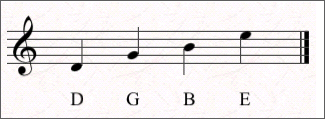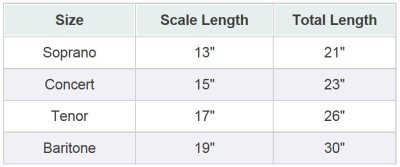|
Baritone Ukuleles: Smart Choice for Beginners
Are you curious about learning to play one of the baritone ukuleles out there? If so, it just might help if you knew a little bit about the baritone ukulele, how it came into being, the difference between it and the other sizes of ukuleles, and what to look for in a good quality baritone uke. How is a Baritone Uke Different?As a standard rule of thumb, ukuleles are associated with the bright, crisp almost jangly tone that is a trademark of the soprano-sized ukulele. While this makes for a light, happy and rather fun sound, the baritone ukulele is anything but light and bright. The darker, richer flavor of a baritone uke is not the only difference between a baritone and its soprano, concert and tenor brothers. There is also the difference in size.I’m sure that you’ve heard the term that “size doesn’t matter”? Well, when it comes to ukuleles, size is very much a determining factor. Indeed, baritone ukus are at least nine inches longer than the 21 inch soprano uke. And they make use of every one of those additional inches to produce a far deeper and richer sound that is as different from its soprano brother as night is from day.
The warm rich tone of the baritone uke makes it a great favorite with those who play jazz or blues style guitar, for it responds very well to fingerpicking and has a nice flow about it that gives it a depth its smaller brethren just don’t seem to have. Another plus to having a larger uke is that they are easier to play, especially for those individuals who have longer fingers that don’t quite seem to fit in those tiny frets on the soprano ukuleles. The additional length of the neck and the wider frets ensure that even those with larger hands can play a ukulele with no problem. Last but not least, a notable difference and benefit of a Baritone over other ukulele sizes is that the strings are tuned to the same top strings of the guitar (D-G-B-E), making the transition from the ukulele to the guitar very easy.

What to Look for?When you are looking to purchase a baritone ukulele, the quality of its construction is definitely the first thing that you will want to concern yourself with. The best quality baritones have solid spruce or cedar tops and are crafted with solid hardwoods like mahogany or the native Hawaiian Koa wood that gives it a more authentic, woody flavor.Of course you can find ukuleles made from nearly every type of material including laminates and plastics. But by spending a bit more on quality construction materials, you can ensure that your instrument is one that will last you for years and that will serve you well no matter where you play it. While there are some who say that the “best” ukuleles are only to be had only from certain companies, keep your eyes and your mind open; sometimes you will find well-made baritone ukus that come from companies you might not expect. It is the quality of materials and workmanship that matter when you are selecting baritone, not the name brand of the manufacturer.
More Ukulele Links
Tell us about your favorite Baritone Ukulele!Include the model # and explanation of why your ukuele is so great! What Other Visitors Have SaidClick below to see reviews from other visitors to this page...
Baritone Ukulele: Cordoba 20BM
Baritone Ukulele: Rogue
|












